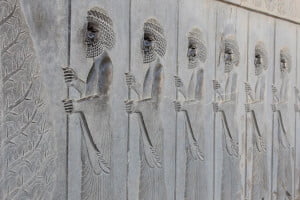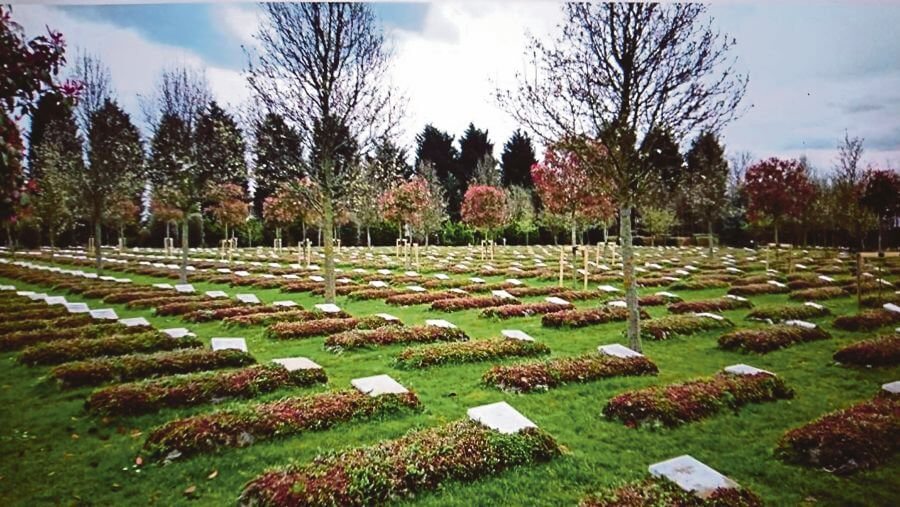Roll the dice?

Getting your Trinity Audio player ready... |
Question
I found out playing games which require dice are (ḥarām) [sic. screenshots provided]. I need to know in what context was it said, as our family plays Ludo (a Pakistani board game is very popular amongst all ages).
Answer
- For readers in English, there does seem to be a degree of confusion over the traditions that are found in some of the prominent collections of aḥādith on this subject as well as how they are presented to the reader.
- It is important to examine each of the various traditions in turn, paying close attention to the authenticity and the reported wording that has reached us. Care should be taken when citing several of the traditions, as they are not connected (musnad) and not necessarily authentic (Ṣaḥīḥ).
- It is also important to consider the origin of the key words used in the traditions and trace these back, as far as possible to the origin.
- Our position, is that several of the quoted traditions on this subject are not authentic, each containing either broken channels of transmission or missing narrators. The main tradition often cited, appearing in Ṣaḥīḥ Muslim, refers to a proto-version of the game that strictly speaking, no longer exists. Moreover, it can be interpreted, as others have held, to relate to only games that involve betting or gambling, as it seems it was known amongst the very early generations accounting for its specific mention and prohibition. Absent any betting or gambling, it is not prohibited.
Reasoning
Accompanying the question were several screenshots of various narrations in translation, purportedly showing, or interpreted to mean, that playing dice is prohibited. Rather than seek to translate the individual word at this juncture, we will present the narrations and leave the key word(ing) in transliteration, for interpretation thereafter.
The first of the traditions appears in the collection of Ṣaḥīḥ Muslim, narrated on the authority of Buraydah, may Allah be pleased with him:
حدثني زهير بن حرب حدثنا عبد الرحمن بن مهدي عن سفيان عن علقمة بن مرثد عن سليمان بن بريدة عن أبيه، أن النبي صلى الله عليه وسلم قال من لعب بالنردشير فكأنما صبغ يده في لحم خنزير ودمه
Zuhayr ibn Ḥarb narrated to me Abdar-Raḥman ibn Mahdi narrated to us from Sufyān from ‘Alqamah ibn Marthad from Sulaymān ibn Buraydah from his father that the Prophet peace be upon him said: Whoever played ‘Nardashir’ is like one who dyed his hand with the flesh and blood of swine.
Similar narrations are also cited in the Sunan collections of Abu Dāwud, al-Bayhaqy and Ibn Mājah as well as in the Musnad of Aḥmad. Bukhāri also cites this but outside his main collection of Ṣaḥīḥ in the book al-Adab al-Mufrad. Each channel of reporting (isnād) contains the same elements, namely, from Sufyān from ‘Alqamah ibn Marthad from Sulaymān ibn Buraydah from his father, Buraydah, may Allah be pleased with him.
A second set of traditions don’t carry the word ‘Nardashir’, but rather a variant or abbreviation of it, ‘Nard.’ Notably, this is cited by Mālik in his Muwaṭṭā’:
حدثني عن مالك عن موسى بن ميسرة عن سعيد بن أبي هند عن أبي موسى الأشعري أن رسول الله صلى الله عليه وسلم قال: من لعب بالنرد فقد عصى الله ورسوله
Mālik narrated to me from Musa ibn Maysara from Sa’eed ibn Abi Hind from Abu Musa al-‘Ashari that the Messenger of Allah peace be upon him said: Whoever plays with ‘nard’ has disobeyed Allah and His Messenger.
Muslim doesn’t cite this tradition in his Ṣaḥīḥ, but it appears via the same channel in the Sunan collections of Abu Dāwud, al-Bayhaqy and Ibn Mājah, as well as in Ṣaḥīḥ Ibn Hibbān. In al-Adab al-Mufrad, al-Bukhāri has a second line of reporting from other than Mālik: Aḥmad ibn Yunus and Mālik ibn Ismā’il narrated to us, they said Zuhayr narrated to us he said ‘Ubaydallah narrated to me he said Nāfi’ narrated to me from Sa’eed ibn Abi Hind from Abu Musa.
Although via a longer channel of reporting (isnād) but essentially through the same channel (Ubaydallah / Nāfi’ / Sa’eed ibn Abi Hind / Abu Musa), al-Ḥākim also cites this in his Mustadrak. Thereafter he comments: ‘This ḥadith is Ṣaḥīḥ upon the conditions of the two Shaykh’s (sic. al-Bukhāri and Muslim), but it has not been narrated (by them), by an inadvertent error (wahm) ascribed to Abdullah ibn Sa’eed ibn Abi Hind due to his weakness of memory.’
In the Musnad of al-Bazzār, there is a slight variance of wording, with the companion, Abu Musa al-‘Ashari, purportedly narrating the Prophetic wording to the people of Basra:
أَخْبرنا يحيى بن حكيم قال أَخْبرنا مكي بن ابراهيم قال أَخْبرنا عبد الله بن سعيد بن أبي هند قال حدثني نافع عن سعيد بن أبي هند قال خطب أبو موسى رضي الله عنه الناس بالبصرة فقال يا أيها الناس اياكم وهذه النرد أن تلعبوا بها فاني سمعت رسول الله صَل الله عليه وسلم يقول: من لعب بها فقد عصى الله ورسوله
Yaḥya ibn Ḥakeem reported to us he said Makki ibn Ibrāhim reported to us he said Abdullah ibn Sa’eed ibn Abi Hind reported to us he said Nāfi’ narrated to me from Sa’eed ibn Abi Hind, he said Abu Musa may Allah be pleased with him addressed the people of Baṣra and he said: O people, you and this ‘nard’ that you play with, indeed I have heard the Messenger of Allah peace be upon him saying: Whoever plays with it, has disobeyed Allah and His Messenger.
The second set of traditions carrying the reported wording of ‘Nard’ are problematic. These traditions have Sa’eed ibn Abi Hind purportedly reporting from Abu Musa al-‘Ashari. However, in each of these traditions, the channel of reporting (isnād) is in fact broken (munqaṭi) and there is a missing narrator between the two. Surprisingly, Ibn Ḥazm misses this point altogether, utilising the tradition to argue for a prohibition of sales of ‘Nard’ [see: al-Muḥalla, Vol. 7, p. 513]. Yet as al-Dāraquṭni rightly pointed out in his ‘Illal, ‘Sa’eed ibn Abi Hind did not hear anything from Abu Musa.’ Though not as explicit, al-Bayhaqy alludes to the same in al-Sunan al-Kubra. Although with a slight variance of wording, instead of ‘nard’ the word ‘ki’āb’ is used, similar becomes evident, as shown in the Muṣṣanaf of Abdar-Razzāq:
أخبرنا عبد الرزاق عن معمر عن أيوب عن نافع عن سعيد بن أبي هند عن رجل عن أبي موسى الأشعري أن النبي صلى الله عليه وسلم قال من لعب بالكعاب فقد عصى الله ورسوله
Abdar-Razzāq reported to us from Ma’mar from Ayub from Nāfi’ from Sa’eed ibn Abi Hind from a man from Abu Musa al-‘Ashari, that the Messenger of Allah peace be upon him said: Whoever plays with ‘ki’āb,’ has disobeyed Allah and His Messenger.
In his commentary on Musnad Aḥmad, Shu’ayb al-Arnā’uṭ further mentions the same. In some of the traditions in the Musnad of Aḥmad, there is a further problem where Usāma ibn Zayd al-Laythi appears in the channel of reporting (isnād) as there is notable disagreement over him as a narrator. Aḥmad bin Ḥanbal regarded him as weak (ḍaef), his son, Abdullah noted: ‘He is nothing…he reports many rejected traditions (manakeer) from Nāfi.’ Abu Ḥātim al-Rāzi said: ‘Write his hadith, but (they are) not utilised as proof;’ al-Nasā’i commented: ‘He is not strong.’
The word ‘Nardashir’ (نردشير) and its abbreviation of ‘Nard’ (نرد) are not Arabic words in origin, but Persian. Often these are translated as being ‘backgammon’ and ‘dice.’ The word ‘ki’āb’ (كعاب) literally cubes, is also used in translation as a euphemism for dice. Although on occasion there does seem to be some slips. We have seen the word ‘Nardashir’ translated as being chess, which is clearly not correct. In his acclaimed commentary of Ṣaḥīḥ Muslim, al-Nawawi sought to explain this as follows:
‘The Arabic word ‘Nardashir’ is the same as ‘Nard.’ It is foreign in origin but has been Arabized with the word ‘shir’ at the end which means something nice (or sweet). It’s said it is a short fear with the lobes one plays with. And it is said that it was called by that name, because it was put by ‘Ardashir’ the son of Babek, one of the kings of the Persians.’
The middle sentence seems somewhat opaque, but al-Nawawi seems to be alluding to a temporary fear or trepidation when utilising the ‘dice,’ the sweet element seemingly indicative of winning.

Given its seemingly Persian origins, it is necessary to understand more about this and exactly how the game of ‘Nardashir’ was played, in what context and whether it involved anything that Islam later came to prohibit, such as betting and gambling.
Although with route origins originally from India, the name Persian name of ‘Nardashir’ seems to be attributed to the founder of Sasanian Empire, Ardaxšīr I (224-240 C.E.). There has been some scholarly work in relation to understanding the word and nature of this precursor game to backgammon. Some classical Persian texts give reference to the Persian minister Wuzurgmihr (also referred to as Bozorgmehr) fabled for challenging the Indians to their own game and winning. In one such text, the attribution given by Wuzurgmihr appears as: Nēw-Ardaxšīr (Noble is Ardaxšīr). Although, the text [Wizārišn ī Čatrang ud Nihišn ī Nēw-Ardaxšīr] itself would seem to point to a later composition in the six-century, being attributed back to that earlier epoch [See: Touraj Daryaee, “Mind, Body, and the Cosmos: Chess and Backgammon in Ancient Persia,” Iranian Studies, Vol. 35, No. 4, (Autumn, 2002), pp. 281-312].
But ‘Nardashir’ is not backgammon per se, but rather a pre-cursor or proto-version of backgammon, with slightly different rules, and it would seem, having an additional cosmological connotation linked with Zoroastrianism [See: Touraj Daryaee, “Mind, Body, and the Cosmos]. As such, in its original form, it no longer exists. Although sketchy, some anecdotal evidence seems to indicate that the game, had in some sense involved particular betting stakes [History of Ṭabari, Vol. 25, p. 148].
Consequently, in Nayl al-Awṭār Shawkāni notes: ‘Concerning, ‘whoever plays with ‘ki’āb,’ it is the lobes of ‘nard’ that were disliked by the majority of the companions. It is reported that there is a concession upon that by Ibn Mughaffal and Ibn al-Musayyib where it is used in other than gambling’ [Vol. 8, p. 100]. The prohibition relating to betting and gambling, is beyond dispute as per the clear Qur’ānic injunction in 5: 90.




